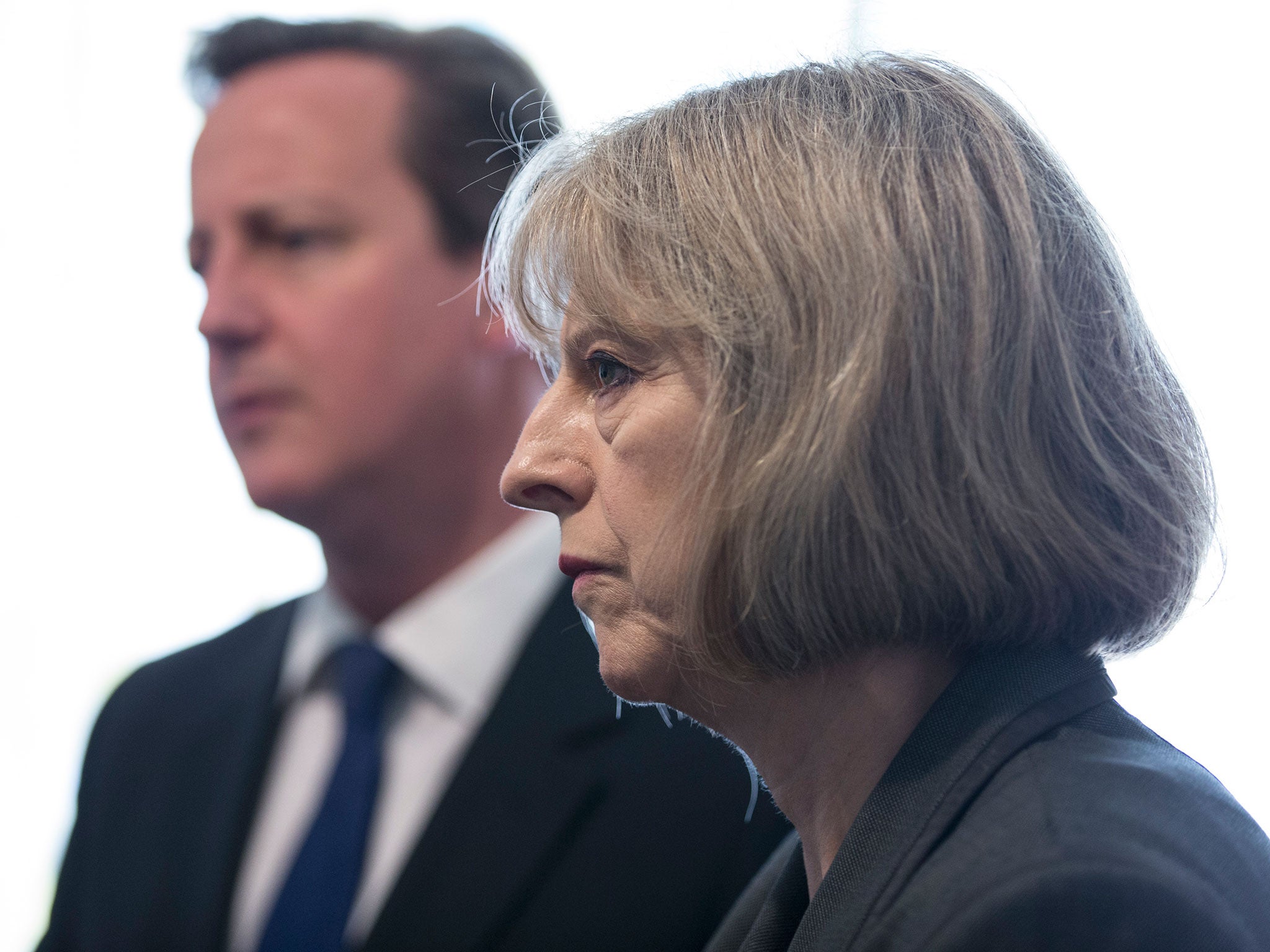Why are senior Tory ministers avoiding unscripted media interviews? I have an idea
Hardly any of my colleagues in radio have been able to talk on air with senior ministers since the election. This looks like a calculated strategy

The broadcast media is reliant on interesting, influential people giving their time to a variety of outlets. Without them, the very core of the medium breaks down. And there is no doubt who the most influential voices are in the UK: government ministers. So accordingly, we expect to hear a lot of them on the radio – and people like me, who work in radio, expect to be able to book interviews with them.
Why? We rely on our politicians to explain decisions or, in some cases, lack thereof, as part of a functioning democracy.
Europe is currently facing one of its biggest humanitarian crises – a crisis mainly within the remit of the Home Office. And what have we heard from our Home Secretary, Theresa May? Very little. What about the Minister for Immigration, James Brokenshire? The Home Office press team say there have been “some interviews” – although there’s little trace online of what these might have been about, and to whom.
It’s not just Home Office ministers avoiding interviews; they’re almost all becoming mysteriously ‘unavailable’ to broadcasters in an increasingly worrying trend. In fact, as LBC presenter Iain Dale pointed out, not a single Home Office minister has been on the station since the election – which is telling, considering the story that’s been front and centre for the past month.
And it’s not only LBC. Sky News’ Dominic Murnaghan hasn’t interviewed any senior government ministers since May either. In fact, a source at Sky told me this very subject was brought up in a recent general news meeting, so concerning had it become internally. It’s no better for Channel 4, either. One of their senior correspondents told me “ministers are seemingly reluctant to do an interview unless they have a policy drum to beat”, adding that they’re no longer available in an unscripted capacity defending or reacting to something that has happened in the news.
Even the new Victoria Derbyshire show has struggled for access. They’ve only had Priti Patel on since the show began. It seems that, unless you’re Andrew Marr or a Today Programme presenter, your access to ministers has been greatly restricted. What a glaring, anomalous irony: a government seemingly intent on dismantling our national broadcaster is only giving interviews to their flagship shows.
However, the BBC is hardly immune to Tory avoidance. On September 3rd, Nick Sutton, editor at Radio 4’s World at One, tweeted: “We’ve asked to [interview] a Minister from Home Office, DFID or FCO on Syrian refugees. Just been told none available”. Eventually, WATO were able to run a piece interviewing Justine Greening – who conspicuously isn’t a senior government minister.
During the election period, the prime minister was conspicuous by his absence. Refusing to participate in debates, he was carefully managed by the Tory machine and the vast majority of his appearances (and those of his most senior colleagues) were, instead, carefully choreographed. George Osborne, the man credited with the Conservatives’ electoral success, was rarely seen out of his hi-vis and hard hat.
Post-election, we’ve been in an odd situation politically. The first all-Tory government in nearly 20 years has been sitting back and watching, as its rival, the official Opposition, have floundered. Below the water, Labour’s feet are working overdrive. Meanwhile, on the surface, things aren’t looking much better. Their feathers are flying more frantically than at a US military pillow fight and CCHQ is biding its time, patient and ready to pick at the carcass of a once-great party. They’re allowing Labour all the political limelight they desire, as in-fighting and talk of a meltdown take centre stage.
When our politicians become ‘unavailable for comment’, they become unaccountable. This is now becoming the unacceptable default setting for governmental departments, en masse.
We rely on our broadcasters to be our voice, and our public servants to give us answers. If that relationship breaks down, for whatever reason, we’re only left with carefully worded statements, on their terms. The broadsheets get a 500 word article every so often but, again, each phrase is carefully selected by a team of strategists. There is no replacement for live one-to-one broadcast interviews.
One Tory MP, who until recently was extremely influential within the party, asked me, albeit jokingly, if I was coming to him for comment on the refugee crisis “as a last resort” when I approached him recently. He told me it was “f***ing disgraceful” that ministers were declining all offers of interviews (though it has propelled people like him back in to the headlines). He’s been a go-to for many networks, as his former colleagues cower behind their scripts.
During the heady years of the coalition we had political rivals within the same department fighting for the microphone, longing to take credit for each and every decision. Now, like high street stores up and down the land, those same departments have shut up shop. They have a monopoly on the supply, and we’ve been cut off.
On election night, as those shock polls rolled in, the term ‘Shy Tories’ became prevalent. Members of the public, too embarrassed to admit they’d vote Conservative, crossed that ballot paper box when facing the pressure of the pencil in their hand.
Now it appears the party have taken that moniker to heart, and Shy Tory voters have elected a Shy Tory government.
Join our commenting forum
Join thought-provoking conversations, follow other Independent readers and see their replies
Comments
Bookmark popover
Removed from bookmarks